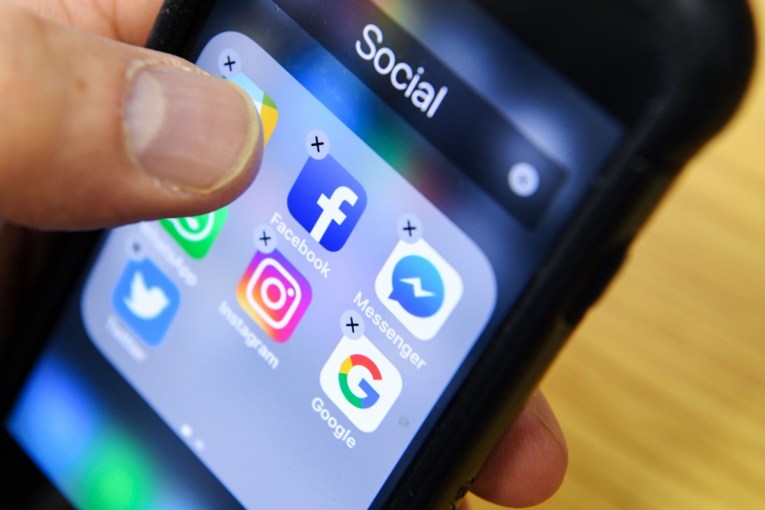Social media CEOs in hot seat over child safety concerns

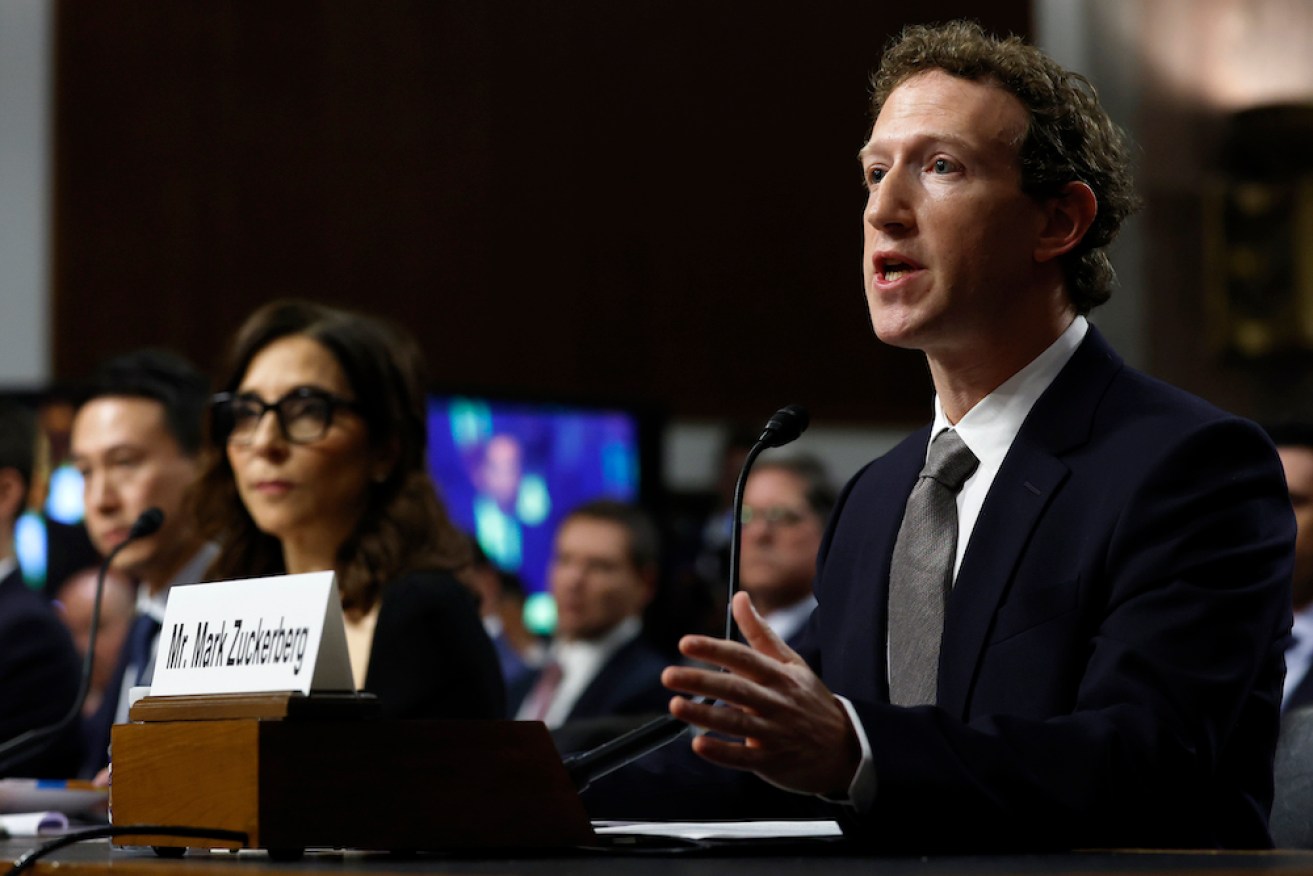
Mark Zuckerberg was one of the five social media CEOs who appeared before the Senate Judiciary Committee. Photo: Getty
Some of the world’s richest people were called before US Congress to account for how their way of doing business has damaged vulnerable children.
Among those speaking before victims, parents and the Senate Judiciary Committee was Meta CEO Mark Zuckerberg, who was accused of having “blood on his hands” for the way his companies, Facebook and Instagram, are run.
Recorded testimony from children who said they had been exploited on social media, or from their parents, was heard. At one point Zuckerberg apologised to the families.
“I’m sorry for everything you have all been through. No one should go through the things that your families have suffered,” he said.
Tweet from @Reuters
The hearing was the latest attempt from US lawmakers to address concerns parents and mental health experts have with social media companies putting profits before online safety.
In the early years of the internet, governments all over the world took somewhat of a deregulatory approach to the technology sector, criminology professor and expert in child exploitation, Dr Michael Salter told TND.
In return, the sector would deliver financial growth and it wasn’t until the last decade or so that governments realised tech shouldn’t be treated any differently to other industries.
“The technology sector was and has been really willing to break children and I don’t think the public understands the extent of the negligence and the disinterest,” Salter said.
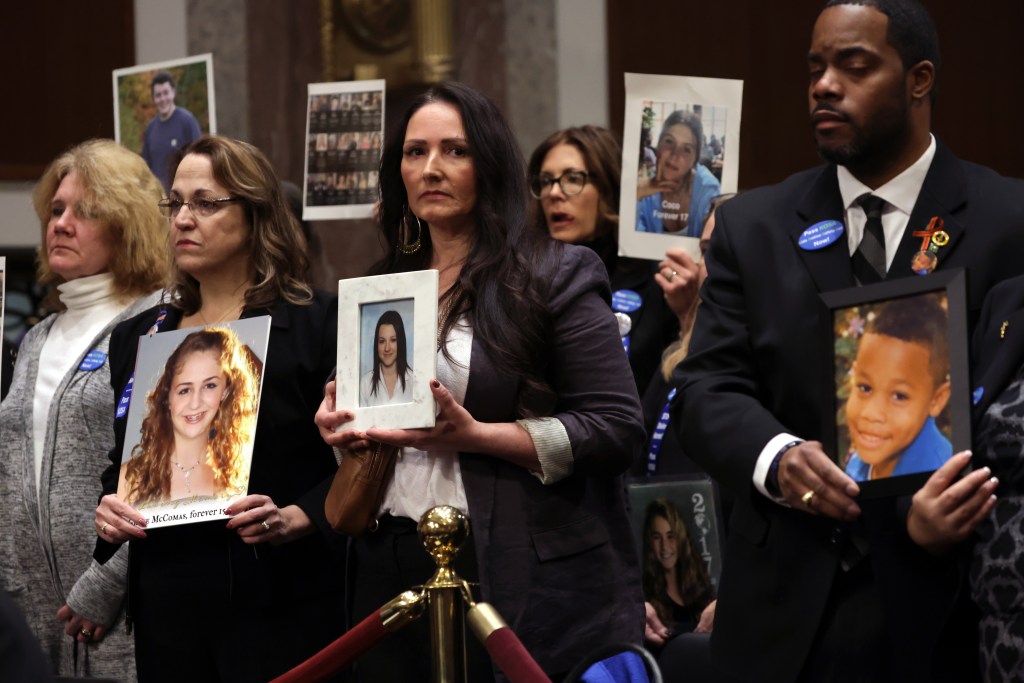
Family and friends of victims were present in the Senate.
Australia’s eSafety Commissioner Julie Inman Grant was actually involved in the shaping of the Communications Decency Act of 1996 in the US, which now gives platforms “intermediary immunity” when something happens on their platform.
“Those of us that care about creating a safer online world and believe that self regulation hasn’t worked, we want to see some workable policies and proposals moving forward in in the US,” she told TND.
“Because it could have if it’s crafted in the right way it could have such a meaningful global impact.”
Concerns for young people’s safety on social media
The harm social media can have on children and young people it is not a problem unique to the US.
From cyber bullying, which has experienced a 40 per cent spike in Australia, to being exposed to disturbing content, or images that raise body image concerns, social media is known to negatively affect people’s mental health.
Tweet from @eSafetyOffice
A 2022 headspace survey found 57 per cent of young people said their mental health was declining and 42 per cent believe social media was the main reason for the decline.
Lurking online are individuals who have a sexual interest in children and their interests can be catered to for a profit, Salter said.
Inman Grant said the eSafety Commission has seen a doubling of child sexual exploitation year on year since the pandemic and the tripling of sexual extortion, which is reaching “epidemic proportions” globally.
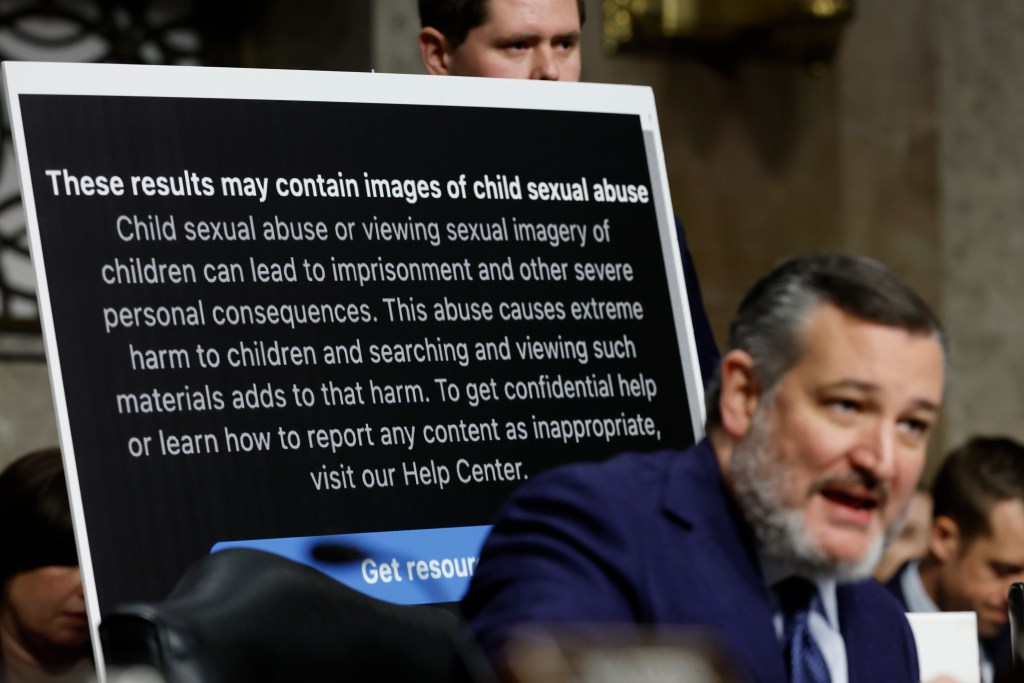
Child sexual exploitation on social media was discussed during the hearing.
There has also been a spike in coerced Child Sexual Abuse materials, where children are being coerced into performing sexual acts on camera.
“About 20 per cent of the images we’re now seeing of child sexual abuse material are created by children themselves, in their bedrooms and bathrooms,” she said.
What happened in the Senate
The CEOs weren’t just facing lawmakers, parents of children who have harmed or killed themselves as a result of social media were there also.
There was a rare display of bipartisanship among the Democrats and Republicans seen in the Senate, but there was no consensus among lawmakers and CEOs.
X CEO Linda Yaccarino said the company supported the STOP CSAM Act, legislation introduced by Senator Dick Durbin that seeks to hold tech companies accountable for child sexual abuse material and would allow victims to sue tech platforms and app stores.
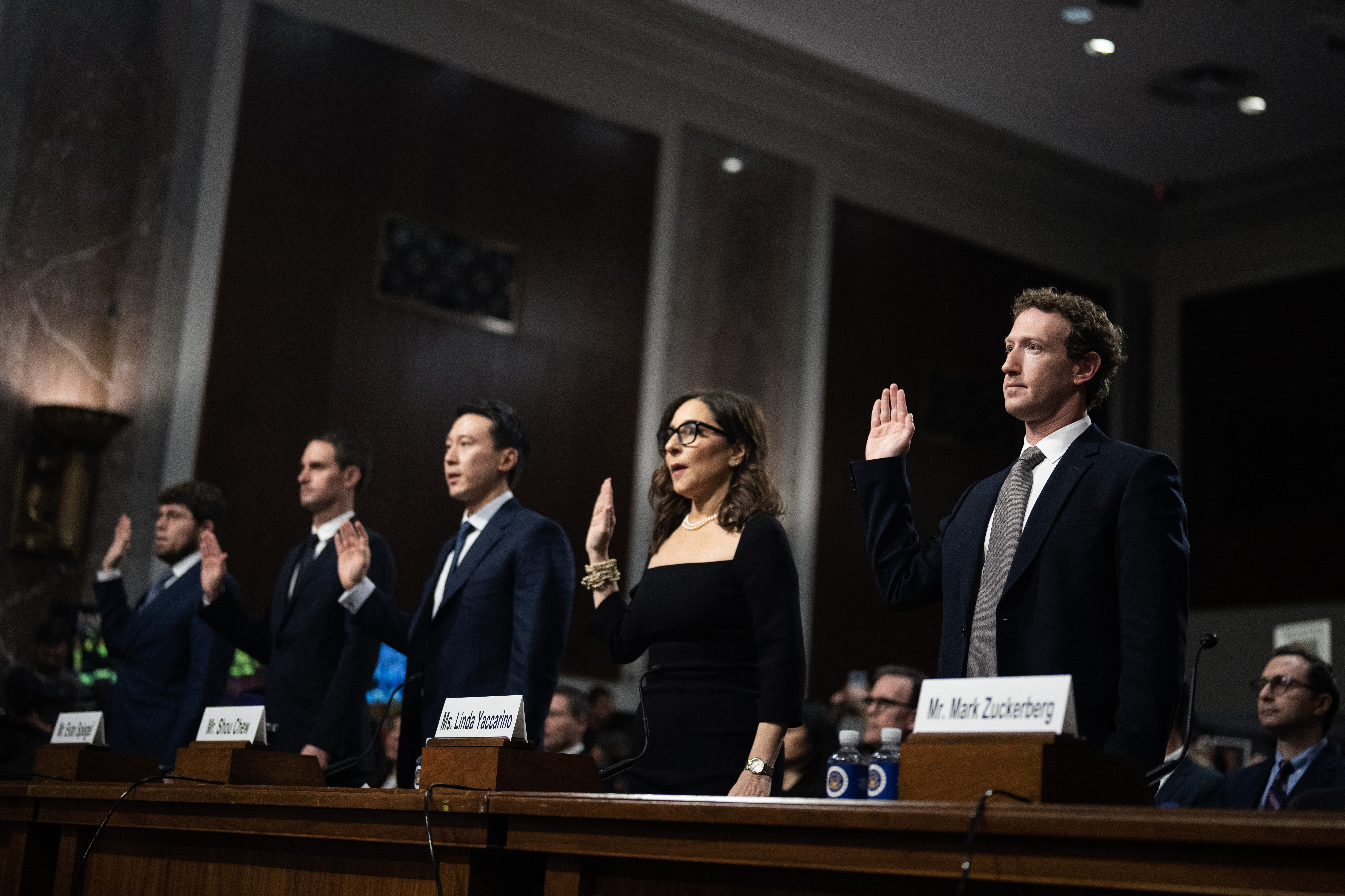
Social media companies have seen little in terms of regulation for years.
TikTok’s Shou Zi Chew said the company would comply if CSAM became law and that it aligned with what TikTok hopes to do.
Yaccarino supported the SHIELD Act, which would prosecute people who share private images without consent and she and Snap CEO Evan Spiegel said their companies would support The Kids Online Safety Act (KOSA).
Chew, Citron and Zuckerberg did not commit to supporting KOSA in its current form, ABC News (US) reported.
The change in Washington
Social media companies certainly have a role to play in protecting children, but so do governments.
Salter said Australia has become a world leader in this regards, thanks to the establishment of the eSafety Commissioner and governments becoming “increasingly robust”.
“Nonetheless, these technology companies are not domiciled in Australia, [so] they are able to elude Australian legislation and expectations,” he said.
Right now Australia is looking to larger markets, like Europe and the US, because that is where the most meaningful legislation is going to be enacted.
He also believes the hearing wasn’t just about the five CEOs who were there, but the tech industry as a whole.
Inman Grant believes that because it’s an election year in the US and Congress is incredibly polarised, it might be hard for meaningful change to come out of the US.
There’s also other challenges state-side, like the first amendment, the Communications Decency Act and politicians on both sides concerned about silencing different forms of political speech, she said.
Regardless, to actually enforce change it will need to be a global shift.
“We need to work together to counter the stealth, the wealth and the power of the global technology industry,” Inman Grant said.
Dr Jennifer Beckett is a lecturer in Media and Communications at the University of Melbourne and her research focuses on online governance of social spaces.
She noted that this hearing in the US was not the first of its kind and the conversations being had were incredibly important for anyone on social media.
“It’s part of the discussions around what kind of regulatory environments we might have to have, what are the sort of boundaries and what more needs to be done,” she said.
